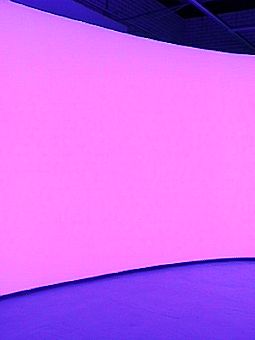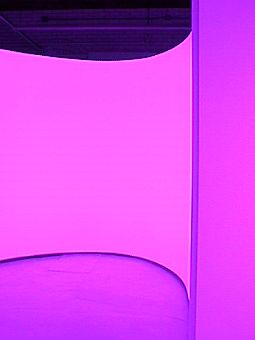| |
2000: Non-Euclidean geometry, that term oft-used but not exactly understood by many of today's non-orthogonally 'inclined' architects and theorists, stems from the many age-old mathematical attempts to disprove one of Euclid's axioms:
"There was in particular one axiom, the axiom of parallels, which they disliked and attempted to eliminate. The axiom states that through a given point one and only one parallel can be drawn with respect to a given line; that is, there is one and only one line that does not ultimately intersect with a given line and yet lies in the same plane." (from H. Reichenbach, The Rise of Scientific Philosophy, 1951.)
With the discovery that light does not travel in a straight line, the notion that parallel lines can then (eventually) intersect seems to disprove Euclid's parallel axiom.
Another aspect of non-Euclidean geometry is that the sum of the angles inside a triangle can add up to more that 180 degrees, but such triangles only truly exist when the area of the triangle is extremely vast, say a triangle created by connecting three galaxies.
Basically, it is still Euclidean geometry that governs what architects on Earth are capable of building.
As an aside, I remember reading that Gehry's office, when first dealing with designs that collaged many non-orthogonal surfaces and forms, resorted to 'descriptive geometry'.
Could it be that human perception of space may be non-Euclidean, but that human imagination has evolved (so far) in a very Euclidean manner?
2004: retirement of Philip Johnson
| |
2004:
 
2008: And has architecture really become more about spectacle than building? And, if so, are architects blameless?
| |
from t a m m u z
Perhaps, at some point in the future (sic), quantum physics will open up a window in which architects can be able to discover their domain under non-Euclidean conditions.
Speaking of which, I'm sure it has crossed your mind that there also might be such a discipline as quondam physics....i'm not sure whether the reading would be more historiographical (as in an anthology of former physics) or genealogical (physics as a study of the universe running back to its former selves).
|

